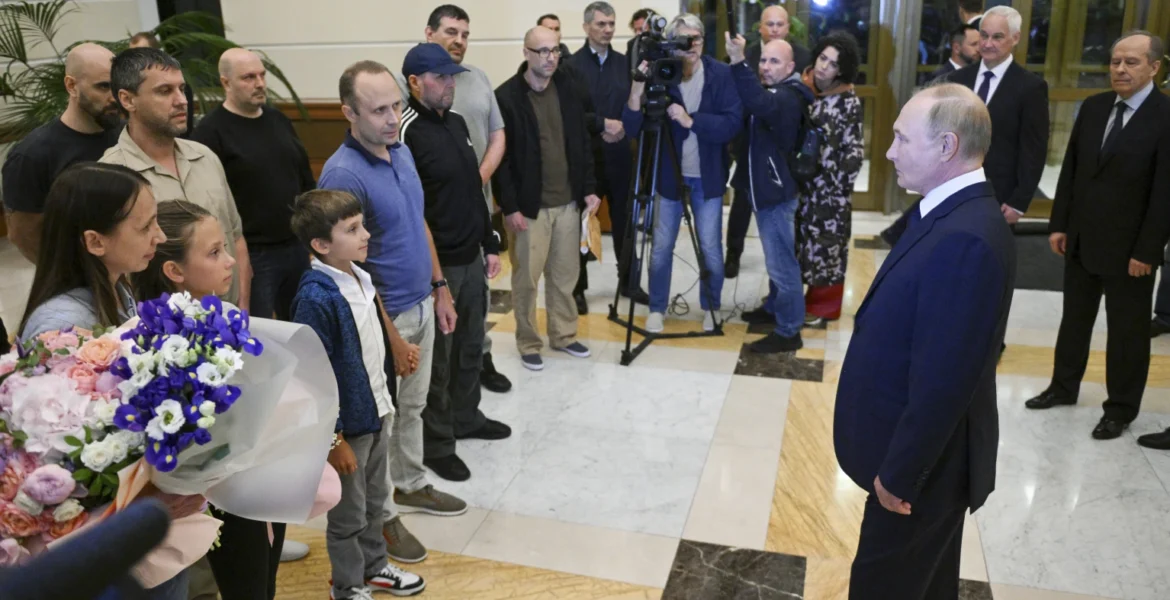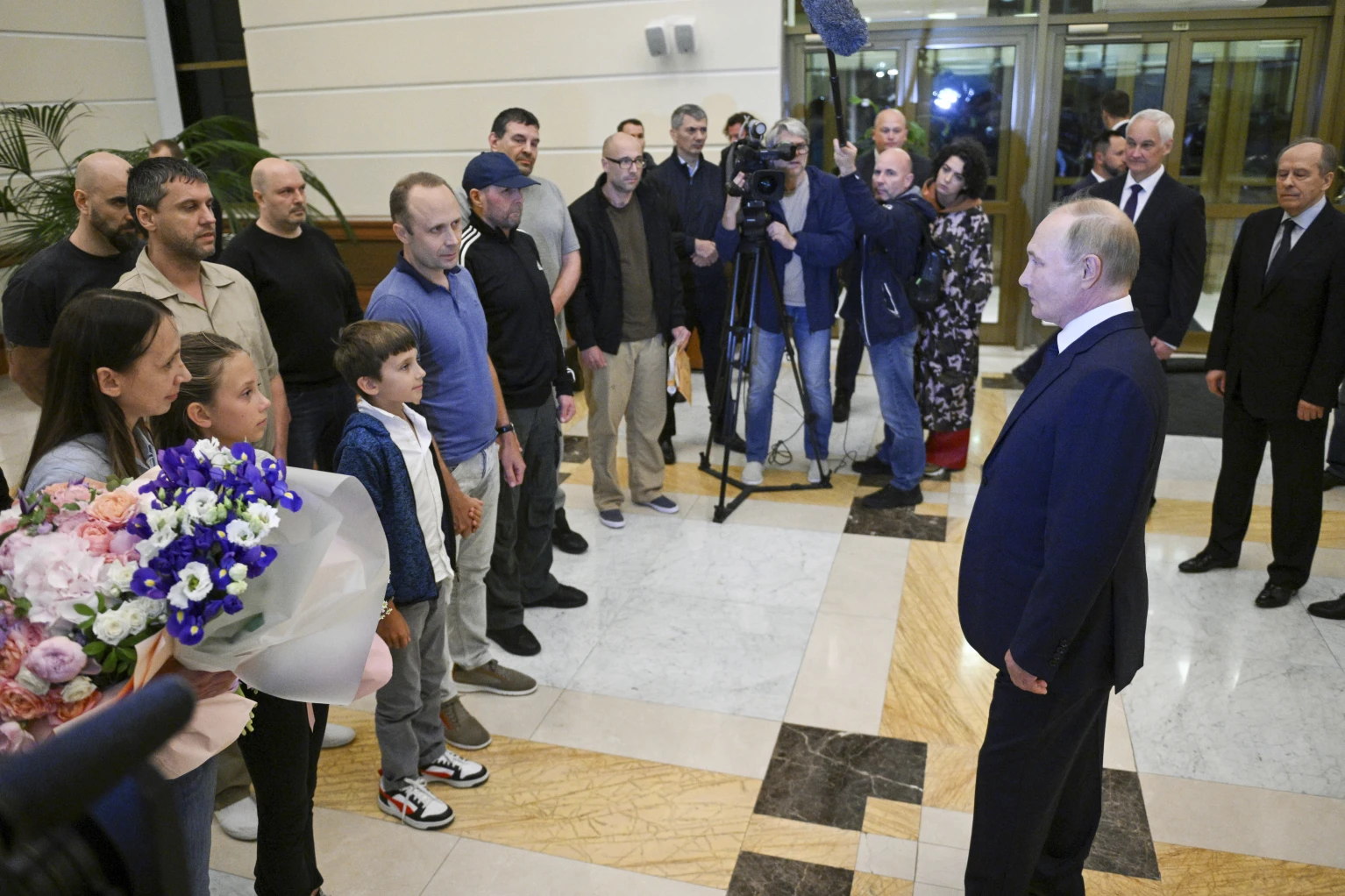
The US and Russia are celebrating the prisoner swap as a success, yet the way the deal is perceived varies widely.
On August 4, 2024 by editor1 StandardPresident Vladimir Putin made a rare public appearance at the airport to welcome home intelligence operatives who were part of a significant prisoner swap with the West, the largest such exchange since the Cold War.

“The Motherland hasn’t forgotten about you,” Putin told the operatives, warmly embracing them as they disembarked from the jetliner that brought them back to Russia.
Putin’s visit underscored a key message to Russia’s security services: if operatives are detained abroad, Russia will make every effort to secure their return.
Vadim Krasikov, a hitman convicted in Germany for the 2019 assassination of a former Chechen militant, was a major figure in the swap, which involved eight Russians being exchanged for 16 Westerners and Russian dissidents. Moscow also released American journalists Evan Gershkovich and Alsu Kurmasheva, former U.S. Marine Paul Whelan, and a group of prominent dissidents.
The swap was hailed as a diplomatic triumph by both Washington and Moscow. Tatyana Stanovaya, a senior fellow at the Carnegie Russia Eurasia Center, observed that the deal’s reception was markedly different in Russia and the West.
“In the West, it’s viewed from a humanitarian and political perspective, and closely followed by the media,” Stanovaya told The Associated Press. “In Russia, it’s more about state interests than societal concerns.”
She noted that the average Russian may not be familiar with the names of those released, but for Putin, the returnees are seen as heroes who have served the state’s interests.
Krasikov was convicted for the killing of Zelimkhan Khangoshvili, a Georgian who had fought against Russian forces in Chechnya and sought asylum in Germany. German authorities found that Krasikov acted on Russian orders and had received support from Russian officials. Despite previous denials of involvement, Kremlin spokesman Dmitry Peskov later confirmed Krasikov’s ties to Russia’s Federal Security Service (FSB).
Analysts suggest that Krasikov’s inclusion in the swap highlights Putin’s prioritization of returning imprisoned spies. Nigel Gould-Davies from the International Institute for Strategic Studies noted that Putin’s willingness to agree to an uneven exchange reflects his high regard for his intelligence operatives.
Putin’s willingness to accept an imbalanced swap contrasts with past practices, where Russia insisted on equal exchanges. For example, in September 2022, Ukraine released a large number of prisoners, including Viktor Medvedchuk, in exchange for a smaller group of Ukrainians and foreigners held by Russia.
Political analyst Abbas Gallyamov views the swap as a way for Putin to reinforce loyalty among Russian operatives abroad, showing that he will go to great lengths to ensure their release.
Dmitry Medvedev, deputy head of the Security Council, justified the deal by suggesting that it is more advantageous to secure the release of Russian operatives rather than leaving them imprisoned.
Among those released by Russia were notable figures such as Vladimir Kara-Murza, an opposition figure convicted of treason, Ilya Yashin, who criticized the war in Ukraine, and associates of Alexei Navalny. While some hope these activists will rejuvenate Russia’s opposition, Stanovaya and Gallyamov believe they will face significant challenges in a media environment controlled by the Kremlin.
Stanovaya predicted that the Kremlin will portray the released activists as serving Western interests, particularly Kara-Murza, who supported sanctions against Russia. Gallyamov agreed that the Kremlin likely views the released activists as a minor threat, with the deal ultimately serving its interests.
You may also like
Archives
Calendar
| M | T | W | T | F | S | S |
|---|---|---|---|---|---|---|
| 1 | ||||||
| 2 | 3 | 4 | 5 | 6 | 7 | 8 |
| 9 | 10 | 11 | 12 | 13 | 14 | 15 |
| 16 | 17 | 18 | 19 | 20 | 21 | 22 |
| 23 | 24 | 25 | 26 | 27 | 28 | 29 |
| 30 | ||||||
Leave a Reply